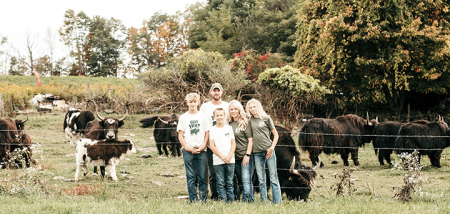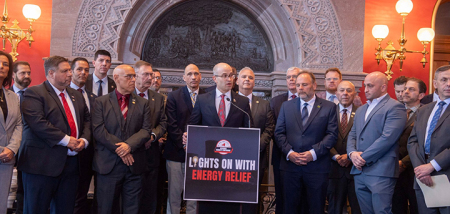Tilting At Windmills: The Four Rebeccas
Published:
May 19th, 2023
By:
Shelly Reuben

Okay. Here is my arbitrary and capricious stab at literary analysis. It all started with a trip to my post office. After the postal clerk cheerfully disposed of my packages, I introduced myself and asked, “What’s your name?”
“Rebecca,” she answered.
To which I excitedly responded, “Do you know how many great novels were written about characters named Rebecca?”
Her reaction was to politely move on to the next customer, but that didn’t matter, because I had already embarked upon an interesting conversation with myself. As I walked out the door, I began to murmur, “Ivanhoe, 1819; Rebecca of Sunnybrook Farm, 1903; Rebecca, 1938; and The Key to Rebecca, 1980.”
Before I tell you about these books, I should mention that I have always considered “Rebecca” to be the most evocative and romantic name in the history of nomenclature. If a character so named is good or evil ... scandalous or drab ... I still love it.
Rebecca.
Rebecca.
Rebecca.
A name worthy of an enchantress, whether she is one or not.
I’ll start with my all-time favorite Rebecca, the one in Ivanhoe by Sir Walter Scott. Daughter of Isaac of York, a Jewish moneylender despised by all Christians in his debt, Rebecca and her father encounter Ivanhoe in the forest after he has been gravely injured in a jousting duel. Rebecca uses her knowledge of medicinal plants to save his life, but she also attracts the attention of Knight Templar Brian de Bois-Guilbert, who conceives an insatiable lust for the beautiful and devout Jewess (Trust me. Her being Jewish is a big part of the story).
The plot goes in at least a dozen compelling directions, including castles being sieged, Saxons defying Normans, the secret return of Richard the Lion Hearted from the Crusades, slaves rescuing their masters, witches being burned at the stake, fathers disinheriting their sons, and so on. But no plot element is as stirring as when Rebecca, imprisoned in a tower by Bois-Guilbert, who is on the verge of despoiling her virtue (i.e., raping her), repels him with these words:
“Submit to my fate ... to what fate? Embrace thy religion! And what religion can it be that harbors such a villain? Thou the best lance in the Templars! Craven knight! – foresworn priest! I spit at thee, and I defy thee. The God of Abraham’s promise hath opened an escape to his daughter – even from this abyss of infamy!”
At which point, Rebecca throws open the window, leaps onto the parapet, and threatens to jump. Seeing that Bois-Guilbert is still moving in her direction, Rebecca exclaims, “Remain where thou art, proud Templar, or at thy choice advance! – one foot nearer, and I plunge myself from the precipice; my body shall be crushed out of the very form of humanity upon the stones of that courtyard ere I become the victim of thy brutality!”
Next of my four Rebeccas, Rebecca of Sunnybrook Farm by Kate Douglas Wiggin, is the story of Rebecca Randall, whose father has died, leaving behind a wife and seven children. To alleviate her burden, the impoverished widow sends 10-year-old Rebecca to live with two crotchety old-maid aunts, who have offered to bring her up and provide her with an education.
In the annals of early 20th Century penniless orphans, Rebecca Randall is nowhere near as captivating as Anne of Green Gables or Judy Abbott of Daddy Long Legs, but there are hints throughout the narrative that she is a remarkable child, whose “eyes were like faith ... the substance of things hoped for, the evidence of things not seen.”
Interestingly, Rebecca of Sunnybrook Farm describes how her brothers and sisters “...are all named after somebody in particular. Hannah is Hannah at the Window Binding Shoes, and I am taken out of Ivanhoe” – reminding us of the cross-pollination of literature. And even though I was not 100 percent charmed by this Rebecca, her optimism is appealing: “I look like a drudge,” she says, “... but I really am a princess; you mustn’t tell, but this is only a disguise. The king and queen who are at present occupying my throne are very old and tottering, and are going to abdicate shortly in my favor.”
My third Rebecca is the only one who dominates every word of every page in an entire novel, even though in the first paragraph, she is already dead. Daphne du Maurier’s Rebecca is as evil as Sir Walter Scott’s Rebecca is good; and the book was made into a perfect film by Alfred Hitchcock.
Both it and the movie start out with the same words: “Last night, I dreamt I went to Manderley again.”
The story is narrated by a young, naïve, and meek unnamed woman (yet another orphan), barely out of her teens. In opening her heart to the reader, she reveals her agonies of indecision and insecurity as she makes the transition from paid companion to love interest of elegant widower Maximilian de Winter. Maxim is owner of Manderley, a stately home that “has been in his family’s possession since the conquest.” It is “a thing of grace and beauty, exquisite and faultless ... built in its hollow of smooth grass-land and mossy lawns, the terraces sloping to the gardens and the gardens to the sea.”
The crux of the novel is the narrator’s misperception, after Maxim marries her, that his first wife was perfect in every way: intelligent, cultured, a flawless hostess, and envied by all for her beauty. However, as Maximilian de Winter finally reveals, the real Rebecca was the exact opposite: “When I married her ... she was so lovely, so accomplished, so amusing.”
But soon he soon discovered that everything about his wife was a fiendish façade.
“Five days after we were married ... She told me about herself, told me things I shall never repeat to a living soul. I knew then what I had done, what I had married. Beauty, brains, and breeding. Oh, my God ... I nearly killed her then. It would have been so easy. One false step, one slip. You remember the precipice. I frightened you, didn’t I? You thought I was mad. Perhaps I was. Perhaps I am. It doesn’t make for sanity, does it, living with the devil?”
So there you have it. Daphne du Maurier’s evil Rebecca juxtaposed against Sir Walter Scott’s brave and beautiful heroine. The contrast could not be more dramatic.
Which brings us to yet more literary cross-pollination in Ken Follett’s World War II thriller The Key to Rebecca. The “Rebecca” referred to in the title is not human; it is du Maurier’s book, a copy of which is being used by Alex Wolff, a German spy, to convey military secrets to Field Marshal Erwin Rommel (the Desert Fox) for the purpose of invading Cairo and conquering Egypt.
“A book code was a variation on the one-time pad ... (but) there was one big advantage which a book had over a pad. A pad was unmistakably for the purpose of encipherment, but a book looked quite innocent. In the battlefield this did not matter; but it did matter to an agent behind enemy lines.”
Most of the action and intrigue in The Key to Rebecca revolves around British intelligence officer William Vandam’s efforts to locate and defeat Nazi spy Alex Wolff.
“If I can get the key to the Rebecca code, I can impersonate Wolff over the radio and send false information to Rommel. It could turn the tables completely – it could save Egypt. But I must have the key.”
Add to the plot a trek across the desert, a dead camel, an English-hating belly dancer, a repentant mistress, and a kidnapped child, and it all adds up to irresistible intrigue.
So there you have my four Rebeccas. If I had to suggest which to read and in what order, I’d say Ivanhoe first, to meet the quintessential Rebecca. Then on to Daphne du Maurier’s evil counterpart. Followed by Ken Follett’s more conventional suspense novel.
As to Rebecca of Sunnybrook Farm, it would do no harm to inflict it upon an unsuspecting child. At the very least, Rebecca Randall is so in love with life that when a gorgeous leaf is blown into her wagon, she rhapsodizes, “Does color make you sort of dizzy? ... Perhaps dizzy isn’t just the right word, but it’s nearest. I’d like to eat color, and drink it, and sleep in it.”
Such enthusiasm is not to be scorned in a role model.
One could certainly do worse.
Copyright © Shelly Reuben, 2023. Shelly Reuben’s books have been nominated for Edgar, Prometheus, and Falcon awards. For more about her writing, visit www.shellyreuben.com
Author: Shelly Reuben - More From This Author
Comments








